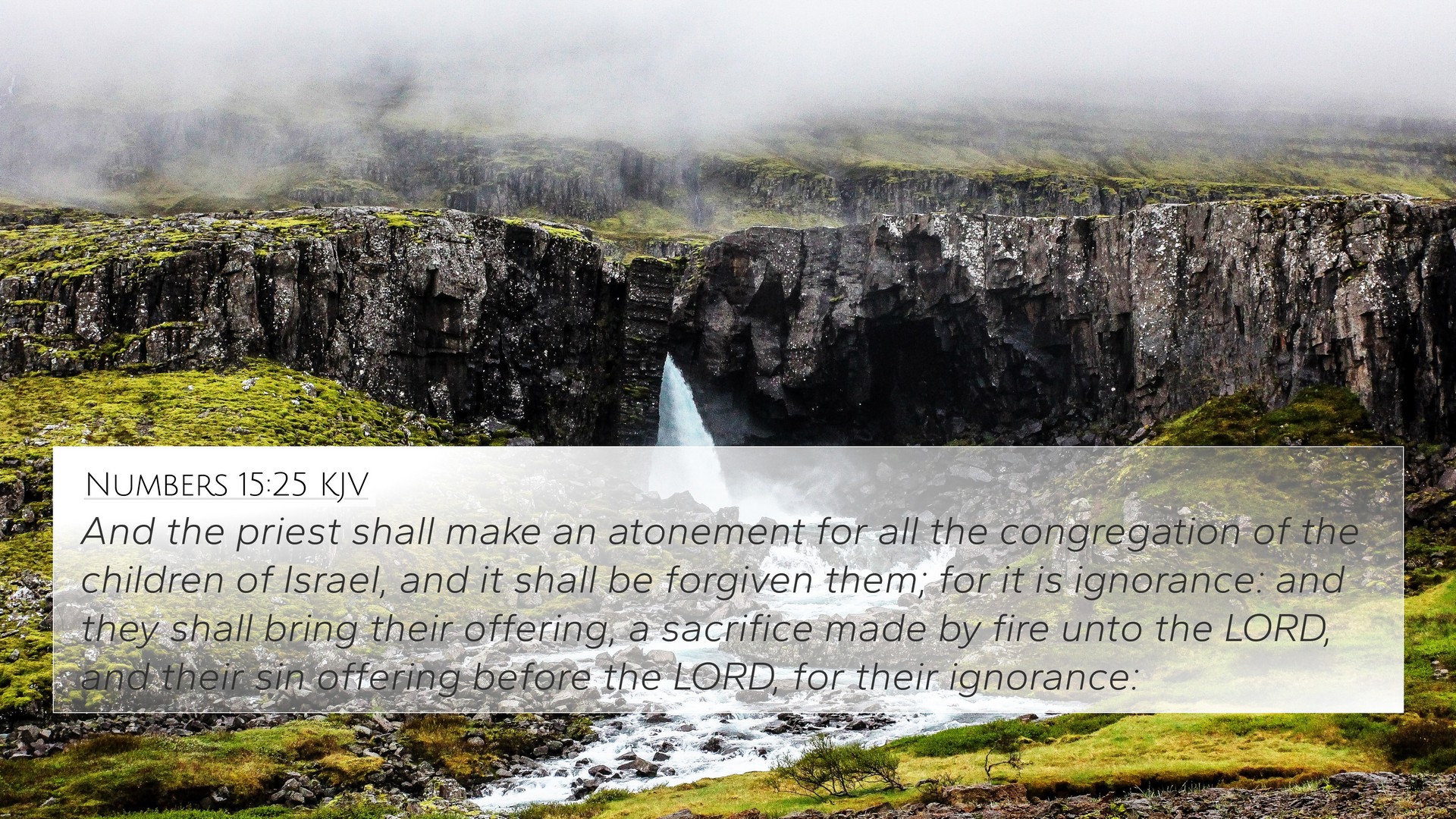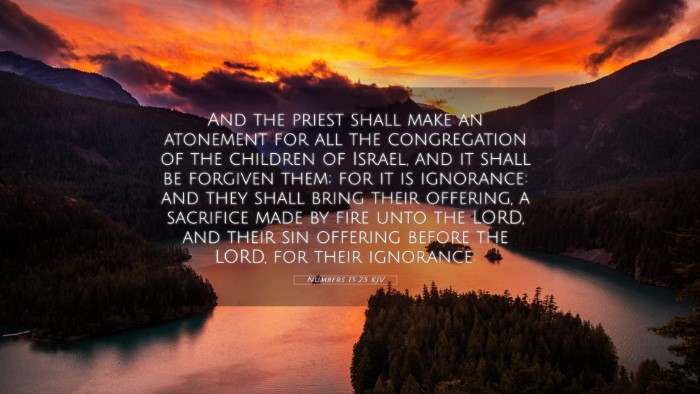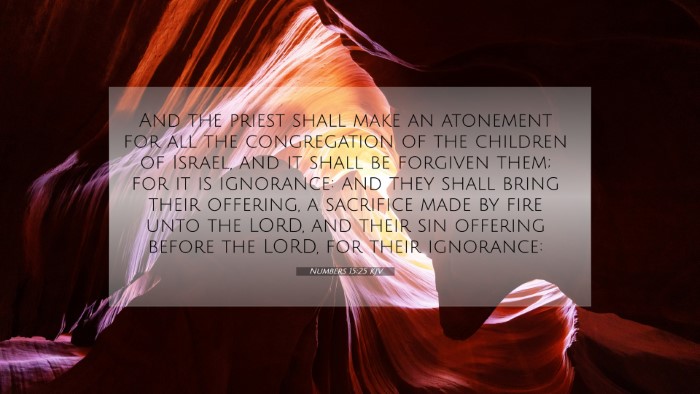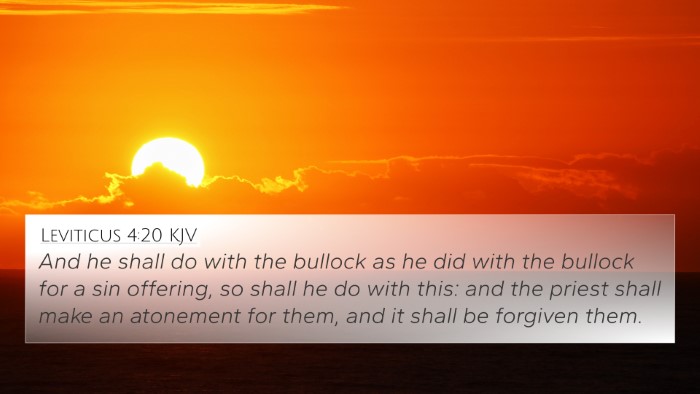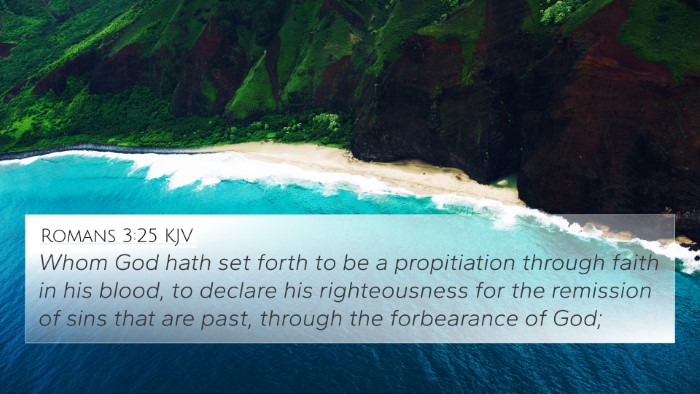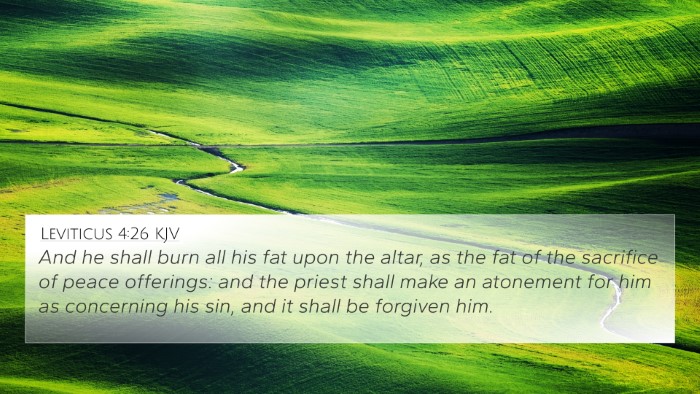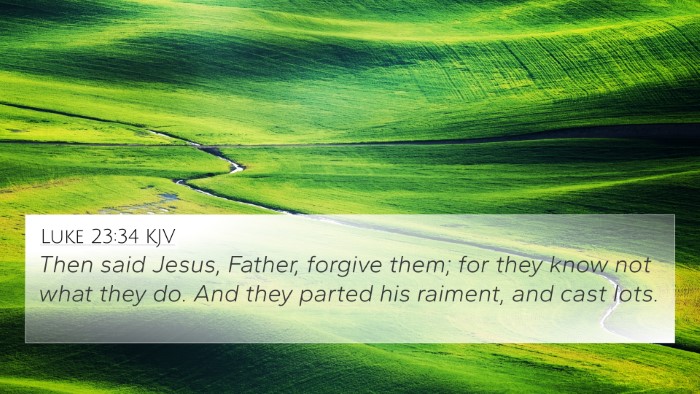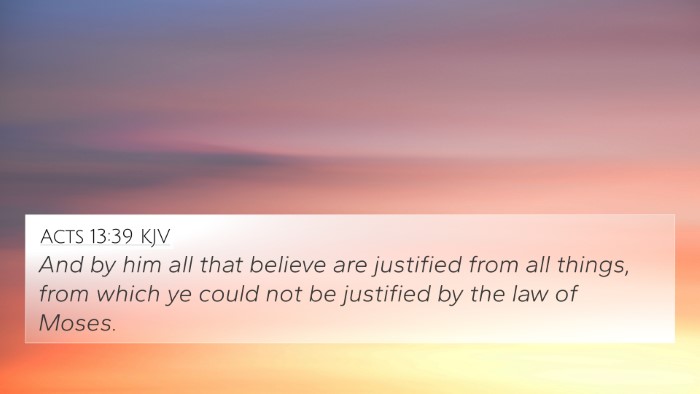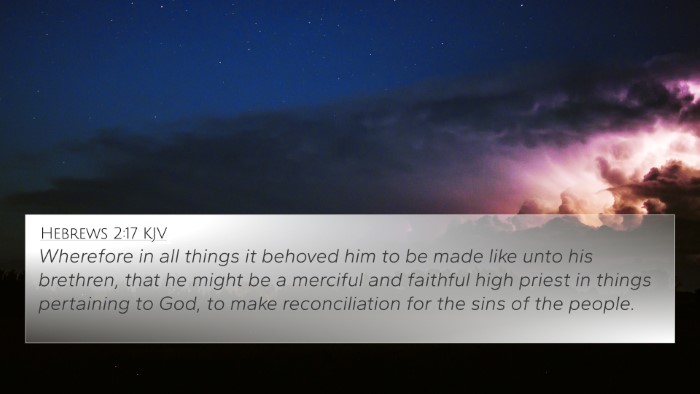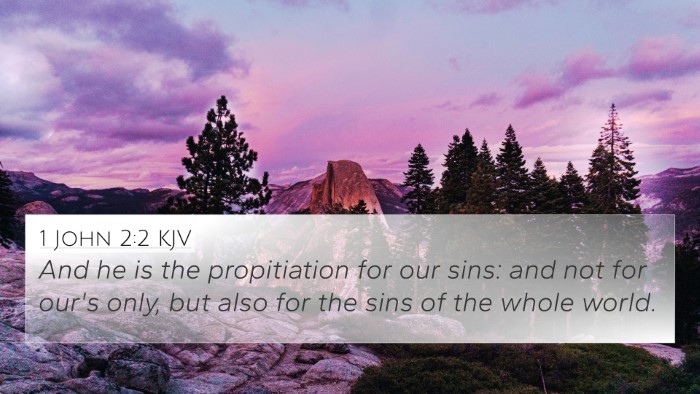Understanding Numbers 15:25
Numbers 15:25 states: "And the priest shall make an atonement for all the congregation of the children of Israel, and it shall be forgiven them; for it is ignorance: and they shall bring their offering, a sacrifice made by fire unto the LORD, and their sin offering before the LORD, for their ignorance." This verse captures the essence of atonement and forgiveness in the context of the Israelite community, emphasizing God’s mercy towards unintentional sins.
Verse Meaning and Commentary Insights
The verse indicates the procedure for making atonement for unintentional sins committed by the entire congregation, underscoring the communal aspect of sin and the communal responsibility for seeking forgiveness.
Insights from Matthew Henry
According to Matthew Henry’s commentary, this verse points to God’s readiness to forgive the unintentional transgressions of His people. Henry emphasizes that such forgiveness is conditional upon the bringing of a proper offering, which demonstrates both the significance of repentance and the necessity of approaching God with the right heart.
Insights from Albert Barnes
Albert Barnes notes that the phrase "for it is ignorance" signifies that the individuals were not deliberately sinning against God. Barnes reinforces the idea that God takes into account the state of the heart when determining culpability. His commentary highlights the mercy in God’s law, which provides a means for atonement even for sins committed out of ignorance.
Insights from Adam Clarke
Adam Clarke offers a deeper examination of the sacrificial system established in this verse. He explains the types of offerings required and stresses that these acts of worship are vital for seeking reconciliation with God. Clarke points to the importance of the priest’s role in mediating between God and the people.
Cross-References to Numbers 15:25
- Leviticus 4:13-14: Discusses the communal sin offering, illustrating a similar process for unintentional sins.
- Hebrews 9:22: Affirms that without the shedding of blood, there is no forgiveness, relating to the sacrificial practices outlined in Numbers.
- Acts 17:30: Highlights God's command to repent, linking to the principle of seeking forgiveness for ignorance.
- 1 John 1:7-9: Assures believers that if they confess their sins, God is faithful to forgive, echoing the themes of atonement.
- Psalm 32:1-2: Reflects the joy of forgiveness, connecting personal sin with divine mercy.
- Ezekiel 18:30: Calls for repentance as a prerequisite for atonement, reinforcing communal responsibility.
- Colossians 1:14: Speaks of redemption and forgiveness through Christ, drawing parallels from the atonement established in the Old Testament.
- Luke 23:34: Jesus’ prayer for forgiveness of those who crucified Him can be linked to the prayers made for ignorance in Numbers 15:25.
- Isaiah 53:5: Prophesies about the Suffering Servant bearing iniquities that connect to themes of atonement.
Connecting Biblical Themes
The themes of atonement and forgiveness in Numbers 15:25 resonate throughout both the Old and New Testaments. Understanding this verse allows readers to explore several connections between Bible verses, establishing a deeper insight into the nature of sin, repentance, and reconciliation with God.
Tools for Bible Cross-Referencing
To fully explore the connections between Bible verses, consider using tools for Bible cross-referencing, such as:
- Bible concordance for keyword searches
- Cross-reference Bible study guides
- Bible reference resources for thematic studies
- Comprehensive Bible cross-reference materials for deeper insight
Conclusion
Numbers 15:25 serves as a pivotal reminder of God’s grace and the provision for atonement in the face of unintentional sin. By engaging with public domain commentaries and referencing related scriptures, believers can appreciate the rich tapestry of biblical teachings about forgiveness and reconciliation.
